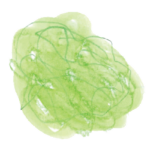
Oxford Workshop
Response*able Drawing
Countdown Democracy is a low-threshold, participatory experiment that invites people to reflect on their everyday experiences with democracy. Pencil and paper are as the main tools for this workshop.
This workshop is an experiment by and with Kaj Osteroth & Sarah Hegenbart as part of the research and exhibition project response*able drawing.

art educator RESEARCH
Transformative Art Survey
The survey, titled ‘Transformative Art?’, was designed by Anisha Gupta Müller and explored the potential of art to drive societal and individual transformation. It examined the role of dominant art institutions, the influence of prominent artists, and the distinction between institutionalised art and community-based art. The survey also delved into the personal impact of art, its accessibility, and how social constructs like gender, race, class, and ethnicity affect or do not affect our responses to art.
In a creative approach, the questionnaire also aimed to play with the very framework of surveys and question the nature of data accumulation. Some of the questions were intentionally provocative and showed bias in their phrasing, highlighting the subjectivity of the researcher and limitations of scientific methods, which are always present in research processes.
Conducted online via SurveyMonkey, the survey gathered responses from 19 participants, including political artists, educators, and activists. It consisted of 10 questions, with respondents spending an average of 35 minutes completing it.

Digital media and Critical Diversity
Class Feedback Survey
This survey was conducted to evaluate studentsʼ impressions about digital media before and after their courses. A total of 60 students participated, answering questions about their confidence in programming, the perceived relevance of digital skills, and how course content and teaching approaches influenced their learning. The survey also examined the impact of diversity, representation, and personal experiences on their development in this field.
The survey was designed specifically for students in Christine Goutriéʼs classes, with the findings later shared with researchers at Humboldt University for analysis of trends and conclusions.

ARTIS BLOG POST
Excerpt of Paper on Ethical Conflicts in the Research Project: ARTIS. Speaking For and Over Others
by Anisha Gupta Müller (KHB)
The ARTIS project description aims to research ‘how art impacts societies depending on their dominant ideologies’.11 This excerpt by Anisha Gupta Müller (KHB) hopes to turn the question around: how do dominant ideologies affect research in the first place?
From the context of the art school weißensee kunsthochschule, Anisha Gupta Müller writes on the ethical problems of ‘including’ marginalised people in research. What does it mean to incorporate structurally oppressed groups in artistic or scientific (even non-profit) projects? What does this have to do with power?
Through critical race and post-colonial theory, this essay excerpt critiques the initial plan to involve weißensee’s *foundationClass in the ARTIS project. It describes our political process and justifies our decision to exclude *foundationClass from our joint research.

ARTIS BLOG POST
Excerpt of Paper on Ethical Conflicts in the Research Project: ARTIS. Research as ‘Dirty’[1]: On Colonial Histories of Research
by Anisha Gupta Müller (KHB)
The ARTIS project description aims to research ‘how art impacts societies depending on their dominant ideologies’.2 This excerpt by Anisha Gupta Müller (KHB) hopes to turn the question around: how do dominant ideologies affect research in the first place?
From the context of weißensee kunsthochschule, Anisha Gupta Müller writes on the ethical problems that foreground scientific research, specifically considering the framework of ARTIS, which was in turn responding directly to the EU H2020 call context.
Through critical race and post-colonial theory, this section has initiated a broader conversation with the partner universities and led to the facilitation of a critical whiteness workshop.

CONFERENCE
‘Participatory Practices, Art and Democracy’ ARTIS Conference in Oxford
by Anisha Gupta Müller (KHB)
Participatory art practice and community engagement has featured centrally in art practice and theory since the 1990s. While many have argued that participatory practices contribute to fostering democratic citizenship, critics have questioned whether participants experience themselves as instrumentalised by participatory practices.
This conference forms part of the ARTIS Horizon 2020 consortium grant investigating the transformative potential of the arts. In order to do so, we invite scholars from a broad range of discipline, such as the arts, political science, sociology and cultural studies, to present papers and presentations over two days at Ruskin School of Art, Oxford.

SURVEY
Performative Spaces and Critical Diversity: Class Feedback Survey
This survey was conducted to assess participants’ experiences and perceptions following the “Performative Spaces/ Performative Räume” workshop facilitated by Ulf Aminde. It gathered insights into group dynamics, self-confidence, and critical knowledge of discrimination in filmmaking. Participants were asked about their trust in navigating power-critical issues, recognizing stereotypes, and using smartphone cameras to create planned sequences.
The survey also explored the influence of representation—such as women, non-binary individuals, and BIPoC—on participants’ confidence, as well as the impact of the facilitator’s experiences and historical/political references. Additionally, questions addressed the relevance of the workshop to participants’ future studies and examined how personal positionality and experiences of discrimination shaped their learning.
The survey was designed specifically for students in Ulf Aminde’s classes, with the findings later shared with researchers at Humboldt University for analysis of trends and conclusions.